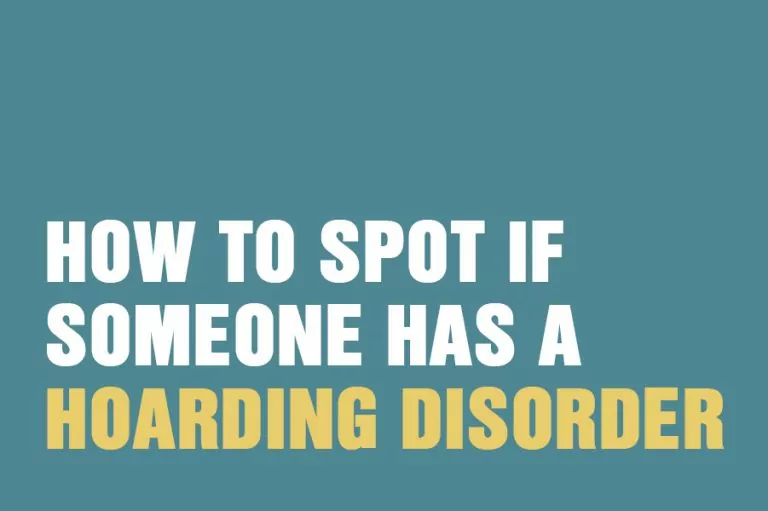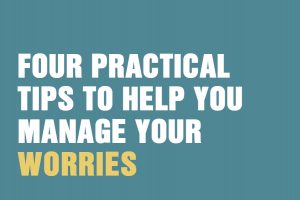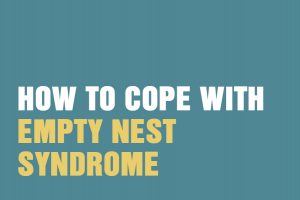Clutter forms a part of many people’s lives, whether it’s bills and flyers piled up on a sideboard, a wardrobe stuffed with clothes that no longer suit or fit, or a loft full of childhood memorabilia that has sentimental value and is difficult to part with.
Hoarding, on the other hand, takes clutter to extremes. A hoarder will have stuff piled up chaotically in lots of rooms, sometimes leaving little room to live. They might end up sleeping on the floor because the bed is so full of clutter, or eating takeaways every night because there’s no space in the kitchen to cook anything.
Accumulating stuff can seem obsessive or compulsive, rather than coming from a place of want or need. A hoarder’s relationship with stuff – valuable or otherwise – can provoke a heightened reaction. You may not be allowed to touch any of the items, and the hoarder may even stop people coming to visit as a result. Mention getting rid of any items and you may see the individual become distressed, anxious or angry. Sometimes all of the above. A hoarder may also have difficulty sorting things out and making decisions, and may find self-care a challenge.
Hoarders often come up with explanations and justifications as to why they’re keeping so much stuff – because it might come in useful one day, they fear they haven’t had full use out of them yet, or because they’re emotionally attached to the items. The clutter accumulates over time, and it’s not because the person is too lazy or low to tidy up. A hoarder collects things consciously.
The World Health Organisation has recently (August 2018) classified hoarding as a mental health issue in its International Classification of Diseases, relevant for the UK. It defines hoarding as “accumulation of possessions due to excessive acquisition of or difficulty discarding possessions, regardless of their actual value”. To be diagnosed with a disorder, the person’s life needs to be disrupted in some way – whether that’s at home, work or in a family or social environment.
The DSM-V – which is used by psychiatrists to diagnose mental health conditions – outlines the following criteria for hoarding disorder…
- Persistent difficulty discarding or parting with possessions, regardless of their actual value.
- This difficulty is due to a perceived need to save the items, and there is distress associated with discarding them.
- The difficulty discarding possessions results in the accumulation of possessions that congest and clutter active living areas and substantially compromises their intended use. If living areas are uncluttered, it is only because of the interventions of third parties (for example, family members, cleaners, or the authorities).
- The hoarding causes clinically significant distress or impairment in social, occupational, or other important areas of functioning (including maintaining an environment safe for oneself or others).
- The hoarding is not attributable to another medical condition.
- The hoarding is not better explained by the symptoms of another mental disorder (eg, obsessions in obsessive-compulsive disorder, decreased energy in major depressive disorder, etc).
Hoarding disorder, as with all mental health conditions, is on a spectrum. The severity of the condition can depend on four further factors:
- With excessive acquisition: where the person who hoards excessively buys items for which there is no space to accommodate them.
- With good or fair insight: where the individual recognises that his/her hoarding behaviours are causing problems.
- With poor insight: where the individual is ‘mostly convinced’ that the hoarding behaviours are not problematic, even when there’s plenty of evidence to suggest they are.
- With absent insight/delusional beliefs: where the individual is ‘completely convinced’ that the hoarding behaviours are not problematic, despite evidence to the contrary.
If you spot a loved one exhibiting hoarding behaviours that are affecting their day-to-day functioning, it can be a challenge to persuade them to seek help. Especially if they fall into the category of being completely convinced that excessive, life-restricting clutter is not a problem. The first step would be to consult the GP who can support you in finding help – which may be through a community mental health team, or to a private therapist who works with CBT – to begin the process of decluttering and getting life back on track.
For support and advice on how therapy can support you or a loved one with hoarding disorder – or other obsessive-compulsive behaviours – call 020 8673 4545 or email [email protected]







